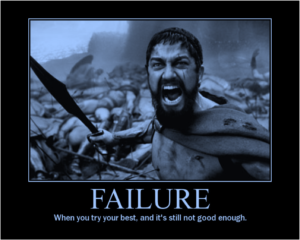The Point: We want to hire/create the best leaders. The main elements that highlight and distinguish leaders from others are their creative thinking and an urge to take initiative. Great leaders are known for utilizing their critical thinking capacity, and thinking out of the box. They utilize their talents to aspire and reach out for the stars, something which others can’t even dream of! Creativity and initiative are the critical elements of a leadership development program… Enjoy!
A true leader is driven and exerts all efforts to successfully achieve their goals and ambitions. A leadership development endeavor should include a drive for taking initiative and utilizing creative thinking for acquiring excellence in the field. What is the leadership challenge then, right?
Leadership Development And Creativity
Aspiring to implement leadership development in an organization is a creative step in itself. Leadership development programs ensure prompting creative and critical thinking in an individual, being trained as a future leader.
To infuse creativity in an individual, the leadership development program ensures the adoption of a variety of tasks and additional responsibilities for the future leader, which trains them for the creative skills required in their organizational position.
360 degree feedback, formal coaching and job assignments are some methods and activities through which organizations strive to polish the creative skills of an individual being developed as a future leader. (Cauley & Velsor, 2004)
As creativity is a core distinguishing element of a good leader, every good and effective leadership developmentprogram ensures thorough polishing of these skills through vigorous efforts.
Initiative And Leadership Development
Taking initiative and exhibiting the drive to take the plunge, is a factor which is deemed necessary for every future leader. The need to try out new ideas, learn about different techniques and methods and taking responsibility to take a risk, are vital and an essential skill of every leader.
An individual who does not try something new does not ensure personal development and growth, and this is something which leaders cannot afford to do. Without taking initiative, leaders can become stagnant and idle, and in this fast paced world, a drive and initiative to succeed is of vital importance.
Leadership development programs inspire initiative by encouraging employees to try out new ideas and follow them through. Assigning challenging and rewarding projects which inspire out of the box thinking, and utilization of unique methods, ensures skill development and personal confidence. Mentoring and coaching are effective techniques for prompting employees to take an initiative. New ideas and the initiative to try out something unique and ensure success, is one feature of an individual, which marks it as different from all the other leaders in the industry. A leader with a will to succeed and ensure personal and career growth, is one who can elevate an organization to new and superior heights in the industry, and ensure its prosperity and business expansion.
Summary
While developing leadership programs to ensure the proper training of the employees in a company, creativity and a drive for taking initiative is given great importance, as they are the sound pillars on which the foundation of leadership is built.
A multi layered and cross generational leadership, one which involves mentoring assistance and intervention is one which is required to instill and polish the creative skills in future leaders. Inspiring and encouraging aspiring leaders to take initiative and take the plunge prompts the development of the required leadership skills, within them.
To learn more about Tip of the Spear Leadership Development offerings, including The Leadership Challenge, CLICK HERE.




